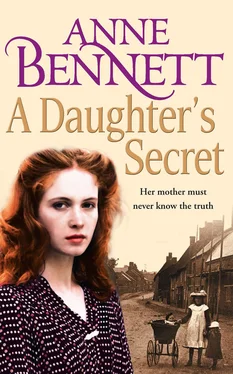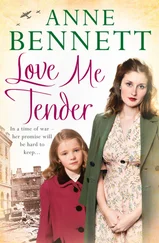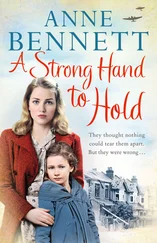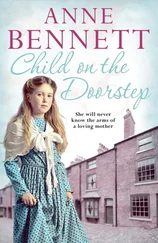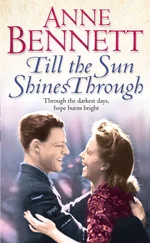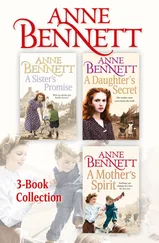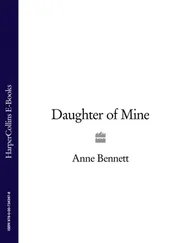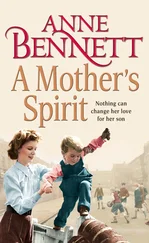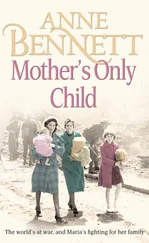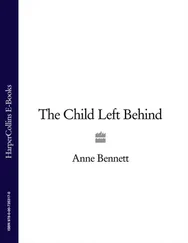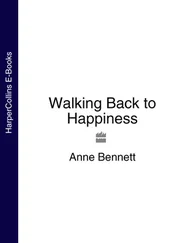Biddy looked at her daughter. She knew McAllister was newly arrived in the town and there had been great curiosity about the family as there would be about anyone new. Biddy said, ‘Isn’t he the husband of Philomena, who was left the grocery store?’
Aggie nodded.
Thomas John frowned slightly. ‘And what business had a man like that with two young girls?’
‘He was nice, Daddy,’ Aggie protested. ‘I’m sure he was just being neighbourly. He asked our names, and when I said mine was Aggie Sullivan he said he could take a bet that wasn’t my given name and that Agnes had a much better sound to it.’
‘Stuff and nonsense,’ snapped her mother. ‘You are called Aggie and that’s all there is to it.’
‘Whisht,’ Thomas John cautioned his wife. ‘Let the girl get on with her tale. What else did he say?’
‘Then he asked would we like to learn to do the Irish dances properly and I said yes but there was no one now to teach us,’ Aggie continued.
‘Seems a strange thing to ask a body,’ Biddy said. ‘Why would he ask you a question like that?’
Tom, two years younger than Aggie, kept his head down so that his mother wouldn’t see his smile. He knew Aggie would have liked to dance all the day long if she had been let. He could take a bet she and Cissie had been jigging about and this McAllister had seen them. No wonder he asked them such a question.
Aggie didn’t answer her mother. Instead she went on, ‘Mr McAllister said it was shameful for us to lose our heritage this way and that he came from the West where such things were prized highly.’
‘Not just now he didn’t,’ Biddy said. ‘His wife was only after telling me this morning that they had been living in Birmingham, England this long while when news came of her aunt’s death. She was really surprised that she had been left the grocer’s shop in the town.’
‘Anyway,’ Aggie said, fearing that they had gone off the track a little, ‘he has offered to teach us to dance, and he said he can also play tin whistle and fiddle, and he can teach any who want to learn those too.’
‘I dare say he would have the time right enough,’ Biddy recounted wryly, ‘for he is more this side of the counter than the other side. He seems to prefer talking with the customers to serving them. His wife has her work cut out with four wee ones to see to as well, for he doesn’t seem to be great in that department either.’
‘Talk sense, woman,’ Thomas John said. ‘What man has a great hand in rearing weans? Sure, that’s a woman’s job.’
‘I know that,’ Biddy said. ‘I just think it a shame that that Philomena McAllister has such a hard time of it. She told me herself her husband is too fond of sitting in Grant’s Bar. In fact, he is there so often she wonders if he has shares in the place.’
‘That’s between them, surely,’ Thomas John replied, ‘and not our business at all, at all. From what I see of McAllister, he’s a personable-looking fellow and he is right, the children shouldn’t forget their heritage. But there has been no one bothered since Matty Phelan died a few years ago.’
‘There’s nothing like a spot of Irish dancing right enough,’ Biddy conceded. ‘I could fling my heels up with the best of them when I was a girl.’
‘So I can go?’ Aggie burst in, almost breathless with excitement.
‘We will make enquiries,’ her father said. ‘That is all I am offering to do at this point. And you can take that smirk from your face, Tom, for I have a mind to ask the man if he could teach you a few tunes on the tin whistle.’
Tom looked at his father in amazement. He was not averse to learning the tin whistle. In fact, if his opinion had been asked, he’d have said that he was quite pleased, but he did wonder when he might get time to practise anything he learned because he and Aggie, being the eldest, were kept hard at it.
His doubt was reinforced when his mother said to Aggie, ‘And don’t you look so pleased with yourself. If we allow you to go to this dancing it will be on top of your duties, not instead of them, and the same goes for you, Tom, and the tunes you learn.’
‘Don’t you be giving out to Aggie and Tom before they have done anything wrong, Biddy,’ Thomas John chided. ‘Neither are slackers, but there is no point in Aggie learning the dancing and Tom the tunes if they are not given time to practise. Haven’t I Joe to help me – and we mustn’t forget Finn, of course,’ he added, ruffling the hair of his youngest son.
Biddy said nothing more. Really, she expected she would have a houseful of sons by now – not that she was keen on children herself, not even her own, but she knew sons were essential on a farm. But she had gone six barren years after the birth of Joe before she produced Finn. She had really thought her childbearing days were over.
Thomas John couldn’t understand why she worried over the lack of sons. ‘What is the problem?’ he would ask, in genuine bewilderment. ‘You have a daughter to help in the house, a wee one to dandle on your knee and gladden your heart with his smile, while I have two fine, strapping sons to help me about the farm. Many would be satisfied with far less.’
Biddy never answered this, but both Tom and Aggie could have told their father that their mother was easily dissatisfied and discontented. The two of them, and to a lesser extent Joe, had borne the brunt of her ill humour time and enough, meted out by the stick that she kept hanging up to one side of the hearth.
In the New Year the dancing lessons were held each Saturday afternoon in St Mary’s church hall, the older ones going to the later class. The church had had to be put at least a mile outside the town, as decreed by the British, who had controlled Ireland at the time it was built. It was in a district called Cockhill. The Sullivans’ farm was also in Cockhill and a little over a mile away from the church so it was no problem for Aggie to get there.
McAllister owned a gramophone, a magnificent thing with a big golden horn. It was his pride and joy, and when he put records on it and lifted the needle over, tunes came out of it. Aggie and the other girls were enchanted, for they had never seen anything like it before in the whole of their lives.
‘I thought he would play the tunes on the fiddle for you,’ her father said when she told her parents about the gramophone, ‘or, indeed, the tin whistle, for he has a fine hand with them both.’
‘He said he couldn’t play and teach us properly, and using the gramophone is better,’ Aggie said.
‘And you enjoy it?’
‘Oh, yes.’ But much of Aggie’s enjoyment was down to the fact that she had been attending the classes only a little time when she fancied herself in love with McAllister.
‘I can’t understand why his wife complains about him so much,’ she said to Tom one day, after she had just come from a lesson. ‘She should be grateful to be married to such a handsome man and one that seems to be in good humour all of the time.’
‘Maybe that good humour is Guinness- or poteen-induced?’ Tom suggested with a grin, and added, ‘That’s what Daddy said, anyway.’
‘Tom,’ Aggie said angrily, ‘how can you say such a thing? Isn’t he doing a grand job with you and the tin whistle? And what’s wrong with a man taking the odd pint of Guinness or nip of poteen anyway? Our own daddy does the same thing now and again.’
‘I was only repeating what Daddy said.’
‘Well, don’t!’ Aggie retorted. ‘Isn’t the man giving up his time freely?’
It wasn’t exactly freely, though no money changed hands. However, as he taught Irish dancing to the butcher’s daughter he got his payment in kind, and he had similar treatment from the newsagent for teaching his daughter so that he had all the tobacco he needed. The various farms around provided him with other produce and so, with their own grocery store as well, his wife was well enough pleased.
Читать дальше
